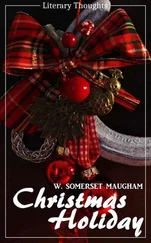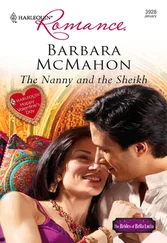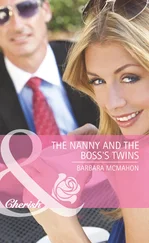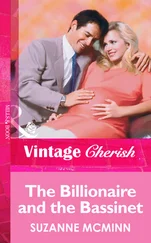Somerset Maugham - The Moon and Sixpence
Здесь есть возможность читать онлайн «Somerset Maugham - The Moon and Sixpence» весь текст электронной книги совершенно бесплатно (целиком полную версию без сокращений). В некоторых случаях можно слушать аудио, скачать через торрент в формате fb2 и присутствует краткое содержание. Жанр: Классическая проза, на английском языке. Описание произведения, (предисловие) а так же отзывы посетителей доступны на портале библиотеки ЛибКат.
- Название:The Moon and Sixpence
- Автор:
- Жанр:
- Год:неизвестен
- ISBN:нет данных
- Рейтинг книги:5 / 5. Голосов: 1
-
Избранное:Добавить в избранное
- Отзывы:
-
Ваша оценка:
- 100
- 1
- 2
- 3
- 4
- 5
The Moon and Sixpence: краткое содержание, описание и аннотация
Предлагаем к чтению аннотацию, описание, краткое содержание или предисловие (зависит от того, что написал сам автор книги «The Moon and Sixpence»). Если вы не нашли необходимую информацию о книге — напишите в комментариях, мы постараемся отыскать её.
The Moon and Sixpence — читать онлайн бесплатно полную книгу (весь текст) целиком
Ниже представлен текст книги, разбитый по страницам. Система сохранения места последней прочитанной страницы, позволяет с удобством читать онлайн бесплатно книгу «The Moon and Sixpence», без необходимости каждый раз заново искать на чём Вы остановились. Поставьте закладку, и сможете в любой момент перейти на страницу, на которой закончили чтение.
Интервал:
Закладка:
At last I turned away. I felt that Strickland had kept his secret to the grave.
" Voyons, Rene, mon ami ," came the loud, cheerful voice of Madame Coutras, "what are you doing all this time? Here are the aperitifs . Ask Monsieur if he will not drink a little glass of Quinquina Dubonnet."
" Volontiers , Madame," I said, going out on to the verandah.
The spell was broken.
Chapter LVIII
The time came for my departure from Tahiti. According to the gracious custom of the island, presents were given me by the persons with whom I had been thrown in contact -baskets made of the leaves of the cocoa-nut tree, mats of pandanus, fans; and Tiare gave me three little pearls and three jars of guava-jelly made with her own plump hands. When the mail-boat, stopping for twenty-four hours on its way from Wellington to San Francisco, blew the whistle that warned the passengers to get on board, Tiare clasped me to her vast bosom, so that I seemed to sink into a billowy sea, and pressed her red lips to mine. Tears glistened in her eyes. And when we steamed slowly out of the lagoon, making our way gingerly through the opening in the reef, and then steered for the open sea, a certain melancholy fell upon me. The breeze was laden still with the pleasant odours of the land. Tahiti is very far away, and I knew that I should never see it again. A chapter of my life was closed, and I felt a little nearer to inevitable death.
Not much more than a month later I was in London; and after I had arranged certain matters which claimed my immediate attention, thinking Mrs. Strickland might like to hear what I knew of her husband's last years, I wrote to her. I had not seen her since long before the war, and I had to look out her address in the telephone-book. She made an appointment, and I went to the trim little house on Campden Hill which she now inhabited. She was by this time a woman of hard on sixty, but she bore her years well, and no one would have taken her for more than fifty. Her face, thin and not much lined, was of the sort that ages gracefully, so that you thought in youth she must have been a much handsomer woman than in fact she was. Her hair, not yet very gray, was becomingly arranged, and her black gown was modish. I remembered having heard that her sister, Mrs. MacAndrew, outliving her husband but a couple of years, had left money to Mrs. Strickland; and by the look of the house and the trim maid who opened the door I judged that it was a sum adequate to keep the widow in modest comfort.
When I was ushered into the drawing-room I found that Mrs. Strickland had a visitor, and when I discovered who he was, I guessed that I had been asked to come at just that time not without intention. The caller was Mr. Van Busche Taylor, an American, and Mrs. Strickland gave me particulars with a charming smile of apology to him.
"You know, we English are so dreadfully ignorant. You must forgive me if it's necessary to explain." Then she turned to me. "Mr. Van Busche Taylor is the distinguished American critic. If you haven't read his book your education has been shamefully neglected, and you must repair the omission at once. He's writing something about dear Charlie, and he's come to ask me if I can help him."
Mr. Van Busche Taylor was a very thin man with a large, bald head, bony and shining; and under the great dome of his skull his face, yellow, with deep lines in it, looked very small. He was quiet and exceedingly polite. He spoke with the accent of New England, and there was about his demeanour a bloodless frigidity which made me ask myself why on earth he was busying himself with Charles Strickland. I had been slightly tickled at the gentleness which Mrs. Strickland put into her mention of her husband's name, and while the pair conversed I took stock of the room in which we sat. Mrs. Strickland had moved with the times. Gone were the Morris papers and gone the severe cretonnes, gone were the Arundel prints that had adorned the walls of her drawing-room in Ashley Gardens; the room blazed with fantastic colour, and I wondered if she knew that those varied hues, which fashion had imposed upon her, were due to the dreams of a poor painter in a South Sea island. She gave me the answer herself.
"What wonderful cushions you have," said Mr. Van Busche Taylor.
"Do you like them?" she said, smiling. "Bakst, you know."
And yet on the walls were coloured reproductions of several of Strickland's best pictures, due to the enterprise of a publisher in Berlin.
"You're looking at my pictures," she said, following my eyes. "Of course, the originals are out of my reach, but it's a comfort to have these. The publisher sent them to me himself. They're a great consolation to me."
"They must be very pleasant to live with," said Mr. Van Busche Taylor.
"Yes; they're so essentially decorative."
"That is one of my profoundest convictions," said Mr. Van Busche Taylor. "Great art is always decorative."
Their eyes rested on a nude woman suckling a baby, while a girl was kneeling by their side holding out a flower to the indifferent child. Looking over them was a wrinkled, scraggy hag. It was Strickland's version of the Holy Family. I suspected that for the figures had sat his household above Taravao, and the woman and the baby were Ata and his first son. I asked myself if Mrs. Strickland had any inkling of the facts.
The conversation proceeded, and I marvelled at the tact with which Mr. Van Busche Taylor avoided all subjects that might have been in the least embarrassing, and at the ingenuity with which Mrs. Strickland, without saying a word that was untrue, insinuated that her relations with her husband had always been perfect. At last Mr. Van Busche Taylor rose to go. Holding his hostess' hand, he made her a graceful, though perhaps too elaborate, speech of thanks, and left us.
"I hope he didn't bore you," she said, when the door closed behind him. "Of course it's a nuisance sometimes, but I feel it's only right to give people any information I can about Charlie. There's a certain responsibility about having been the wife of a genius."
She looked at me with those pleasant eyes of hers, which had remained as candid and as sympathetic as they had been more than twenty years before. I wondered if she was making a fool of me.
"Of course you've given up your business," I said.
"Oh, yes," she answered airily. "I ran it more by way of a hobby than for any other reason, and my children persuaded me to sell it. They thought I was overtaxing my strength."
I saw that Mrs. Strickland had forgotten that she had ever done anything so disgraceful as to work for her living. She had the true instinct of the nice woman that it is only really decent for her to live on other people's money.
"They're here now," she said. "I thought they'd, like to hear what you had to say about their father. You remember Robert, don't you? I'm glad to say he's been recommended for the Military Cross."
She went to the door and called them. There entered a tall man in khaki, with the parson's collar, handsome in a somewhat heavy fashion, but with the frank eyes that I remembered in him as a boy. He was followed by his sister. She must have been the same age as was her mother when first I knew her, and she was very like her. She too gave one the impression that as a girl she must have been prettier than indeed she was.
"I suppose you don't remember them in the least," said Mrs. Strickland, proud and smiling. "My daughter is now Mrs. Ronaldson. Her husband's a Major in the Gunners."
"He's by way of being a pukka soldier, you know," said Mrs. Ronaldson gaily. "That's why he's only a Major."
I remembered my anticipation long ago that she would marry a soldier. It was inevitable. She had all the graces of the soldier's wife. She was civil and affable, but she could hardly conceal her intimate conviction that she was not quite as others were. Robert was breezy.
Читать дальшеИнтервал:
Закладка:
Похожие книги на «The Moon and Sixpence»
Представляем Вашему вниманию похожие книги на «The Moon and Sixpence» списком для выбора. Мы отобрали схожую по названию и смыслу литературу в надежде предоставить читателям больше вариантов отыскать новые, интересные, ещё непрочитанные произведения.
Обсуждение, отзывы о книге «The Moon and Sixpence» и просто собственные мнения читателей. Оставьте ваши комментарии, напишите, что Вы думаете о произведении, его смысле или главных героях. Укажите что конкретно понравилось, а что нет, и почему Вы так считаете.










